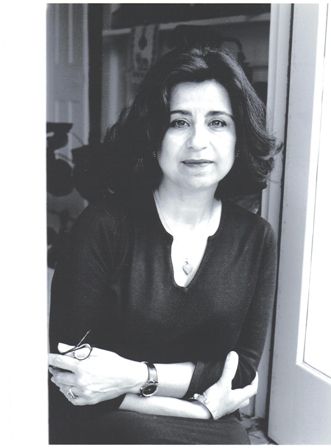Can the humanities help solve conflicts?
The Oxford Research Centre in the Humanities (TORCH) is to co-host a conference on the relationship between the humanities and social change.
Held between Thursday 13 and Saturday 15 March, the event will cover a wide range of national and cultural contexts, bringing together academics, artists and audiences for three days of presentation and conversation.
 Egyptian novelist Ahdaf Souief is one of the speakers at the conference
Egyptian novelist Ahdaf Souief is one of the speakers at the conferenceThe conference, organised in partnership with the School of Oriental and African Studies (SOAS), the University of Virginia and Ertegun House, forms part of the Humanities and the Public Good series, which considers the role of the humanities in addressing contemporary challenges. The event is being supported by the British Council.
Themes of the conference will include artistic expression and political struggle, academic reflection and social responsibility, faith and society, and the circulation of texts, images and bodies at the start of the 21st century.
Saturday's programme includes a number of panel discussions featuring 30 leading scholars from countries including Nigeria, Tunisia, China, Egypt and India. They will be discussing, from a global perspective, topics such as subversive action, migration and translation, and religion and secularism.The conference begins with a series of events at SOAS on Thursday evening and Friday morning before moving to Oxford. Among the highlights is a conversation at Pembroke College on Friday evening between the Booker Prize-nominated Egyptian author Ahdaf Soueif, prize-winning American historian and scholar-activist Robin Kelley, and Paul Smith, Director of the British Council in the USA, on 'The Activist Humanities in a Global Context'.
The full programme of events and information on how to attend is available online. All events are free and open to the public. Registration is recommended to guarantee a place, but some seats will be available on the day on a first-come, first-served basis.
 New study on Amazonia's fire crises urges action ahead of the next burning season
New study on Amazonia's fire crises urges action ahead of the next burning season
 New heart disease calculator could save lives by identifying high-risk patients missed by current tools
New heart disease calculator could save lives by identifying high-risk patients missed by current tools
 Modern Slavery and Human Rights Policy and Evidence Centre moves to Oxford University after receiving continuation funding
Modern Slavery and Human Rights Policy and Evidence Centre moves to Oxford University after receiving continuation funding
 Study shows that island bats are valuable allies for farmers
Study shows that island bats are valuable allies for farmers
 Study reveals how humanity could unite to address global challenges
Study reveals how humanity could unite to address global challenges
 Science festival set to inspire
Science festival set to inspire